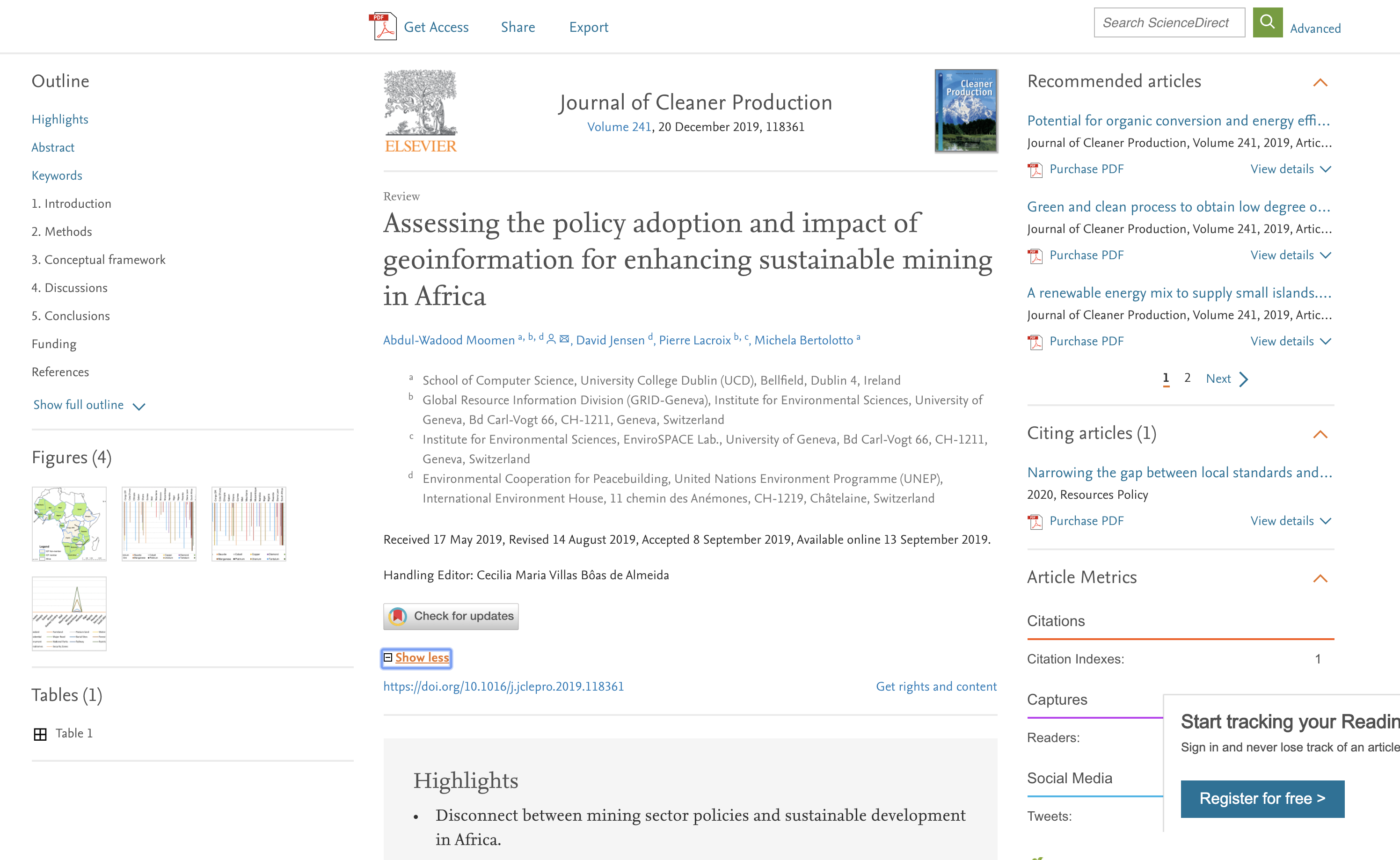Enhancing Sustainable Mining in Northwest Ghana
Development of Time Robust Geospatial Information for sustainable mining in Ghana.
This paper assesses the extent to which mineral rich African countries enable the creation of public geoinformation for enhancing sustainable mining in policy contexts. The paper reviews accessible works and searches databases of industry, governments, civil society, academia, and international organizations. Focus is on 23 major producer countries of globally relevant minerals across Africa. The paper finds a disconnect between mining sector policy regimes and the desire to achieve sustainable development, lack of deliberate policy provision for the adoption and usage of geoinformation to enhance Free, Prior Informed Consent and public participation in mineral resource development projects. Out of the 23, only 2 countries (9%) have expressed the need for geoinformation in mining policies; as an input to public debate and data-driven decision making. Only 3 countries (13%) have set parameters for buffering around environmental and social variables. Out of these 3, only 2 have explicit parameters delineating exploration and mining areas. By not requiring public geospatial data, the implications are existence of poor benefit sharing, poor understanding of environmental risks, and a lack of integrated land use planning in resource-rich African countries. Hence, policy-oriented recommendations include expanding awareness on the value of and enhancing access to geoinformation, establishing paragraphs on geoinformation in Country Mining Visions, and strengthening local capacity for handling these data. Mineral-rich African countries must optimize benefits derivable from emerging Earth Observation technologies and associated spatial data for measuring contributions of the mining sector to specific SDGs.

Development of Time Robust Geospatial Information for sustainable mining in Ghana.